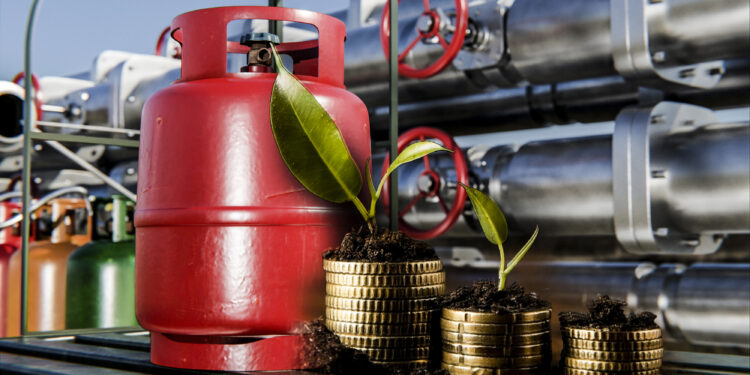EU backing for gas investments kickstarts South Africa’s gas pivot
The growth of gas-fueled power in Africa would be music to the ears of states like Nigeria, Algeria and Mozambique – all countries keen to profit from their vast deposits of natural gas.
- Advertisement -
South Africa bets big on natural gas as it begins a belated push to revamp its energy supplies and slash emissions, bolstered by EU endorsement of investments in gas.
Seth Onyango, bird story agency
- Advertisement -
South Africa is emerging as an early beneficiary of the European Parliament’s vote last July to designate natural gas and nuclear projects as “green energy” investments.
- Advertisement -
The vote was seen as an opportunity for natural gas-endowed states in Africa to continue ploughing billions from the sale of the commodity into their economies.
The recent unveiling of a gas terminal project in South Africa led by Vopak NV of the Netherlands to develop and operate a natural gas terminal signals the country’s intention to diversify its energy mix as it moves away from its heavy reliance on the far dirtier coal.
Before last July, many companies like Vopak NV had kept away or actively divested from Africa due to EU legal constraints.
But lead contractor, Vopak will now establish and manage S.A’s LNG terminal at the Port of Richards Bay, potentially marking a pivotal shift in the nation’s energy landscape.
The terminal will be sited in the South Dunes Precinct at the port, which is one of Africa’s largest by volume –– and will enter into commercial operation in 2027.
Vopak and its sub-contractors will design, build, finance, and operate the LNG terminal for 25 years, suggesting a stable and sustained development of natural gas infrastructure in the country.
South Africa’s Transnet National Ports Authority (TNPA), meanwhile, will invest in the common user port infrastructure, while the consortium will provide the terminal infrastructure.
It is a first for S.A., desperate for a cleaner and cheaper alternative to coal, which has been the main source of electricity generation for over 100 years.
“This is a testament to our dedication to promoting economic activity, job creation, and sustainable energy solutions,” said Moshe Motlohi, managing executive for Transnet’s eastern region ports.
<script src=”https://bird.africanofilter.org/hits/counter.js” id=”bird-counter” data-counter=”https://bird.africanofilter.org/hits/story?id=1542&slug=eu-backing-for-gas-investments-kickstarts-south-africa-s-energy-pivot” type=”text/javascript” async=”async”></script>
LNG which has lower emissions of carbon dioxide, sulfur dioxide, nitrogen oxides, and particulate matter, is seen as helping South Africa meet its climate goals and improve its air quality, with a number of its coal-fired stations currently operating outside of the country’s legally-enforceable environmental standards.
- Advertisement -
South Africa has faced a severe energy crisis for years, due to the rapidly ageing and unreliable fleet of coal-fired power plants that produce most of its electricity.
The crisis has caused frequent and prolonged power outages, also known as load-shedding, which have disrupted the economy, society, and environment.
According to some sources, South Africa had 205 days of rolling blackouts in 2022, and the word “load-shedding” was voted the 2022 South African Word of the Year.
At Cop26 in Glasgow, 20 countries and five development banks pledged to stop approving finance for fossil fuels by the end of 2022. They included the US, Canada, the World Bank, most of Western Europe and six African states.
On the sidelines of the event, Nigeria’s foreign minister Geoffrey Onyeama in a joint press conference with US Secretary of State Anthony Blinken, lambasted the move as ill-advised and appealed for gradual de-carbonising of fossils industries in Africa.
“This would really be a huge blow for countries such as ours that want to see gas as a transition fuel and to have time in which to work towards net zero … but in the meantime to be able to also continue to use gas and exploit the gas that we have at our disposal,” he said.
The growth of gas-fueled power in Africa would be music to the ears of states like Nigeria, Algeria and Mozambique – all countries keen to profit from their vast deposits of natural gas.
Gas could also offer countries like South Africa a reliable energy supply chain thanks to the growth of gas fields in East Africa and established natural gas markets in Qatar, Australia, Indonesia, and Algeria.
As of 2020, Africa had over 630 trillion cubic feet in natural gas reserves, according to the data research firm, Statista.
Statista figures show Nigeria accounts for the bulk of the continent’s natural gas deposits, boasting more than 200 trillion cubic feet in natural gas reserves.
Algeria and Mozambique follow, with 159 trillion cubic feet and 100 trillion cubic feet respectively.
However the fast-improving economics of solar and wind power may see a large part of Africa’s carbon resources remain in the ground, for the time being.
Source:bird story agency
- Advertisement -


